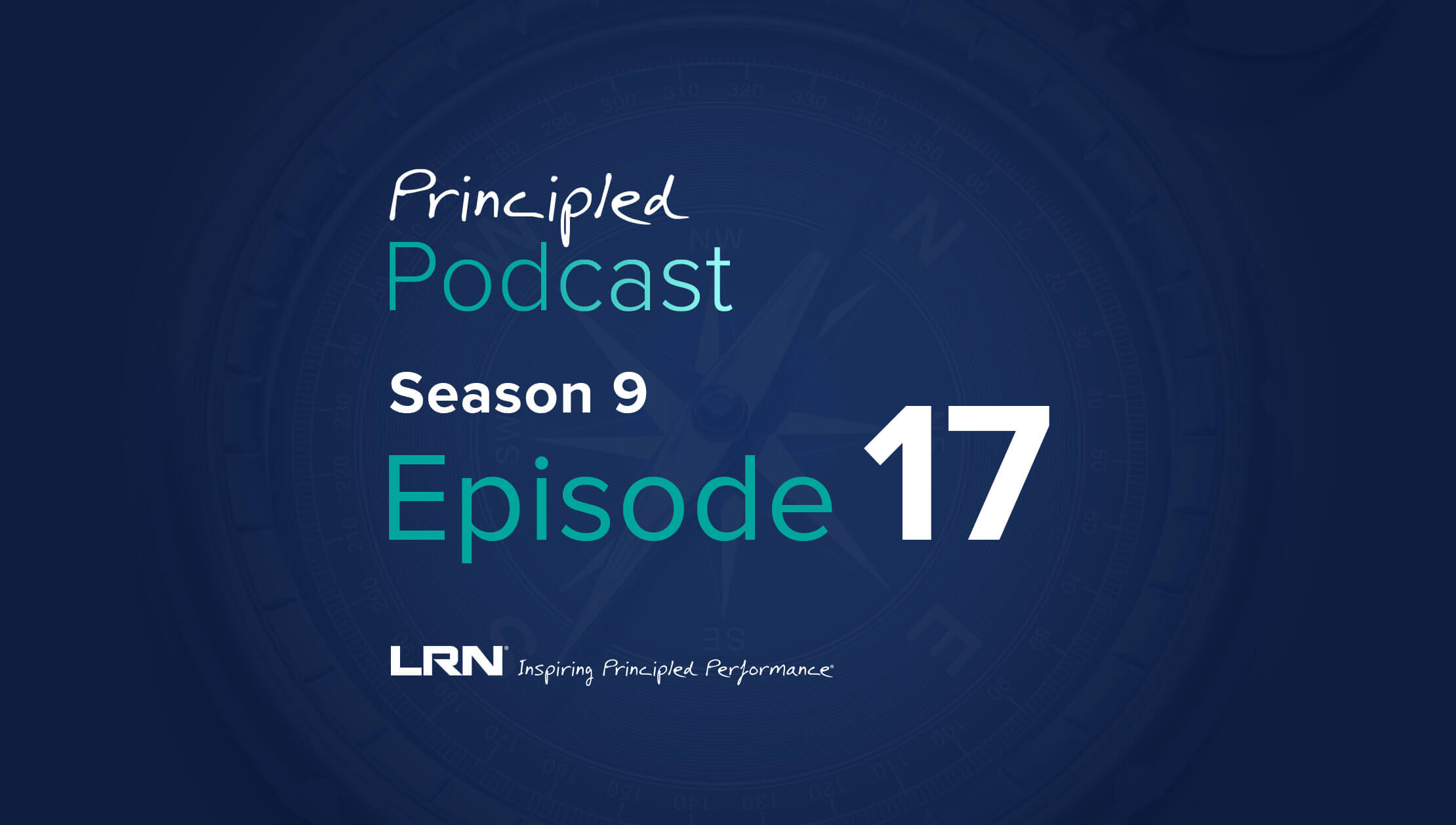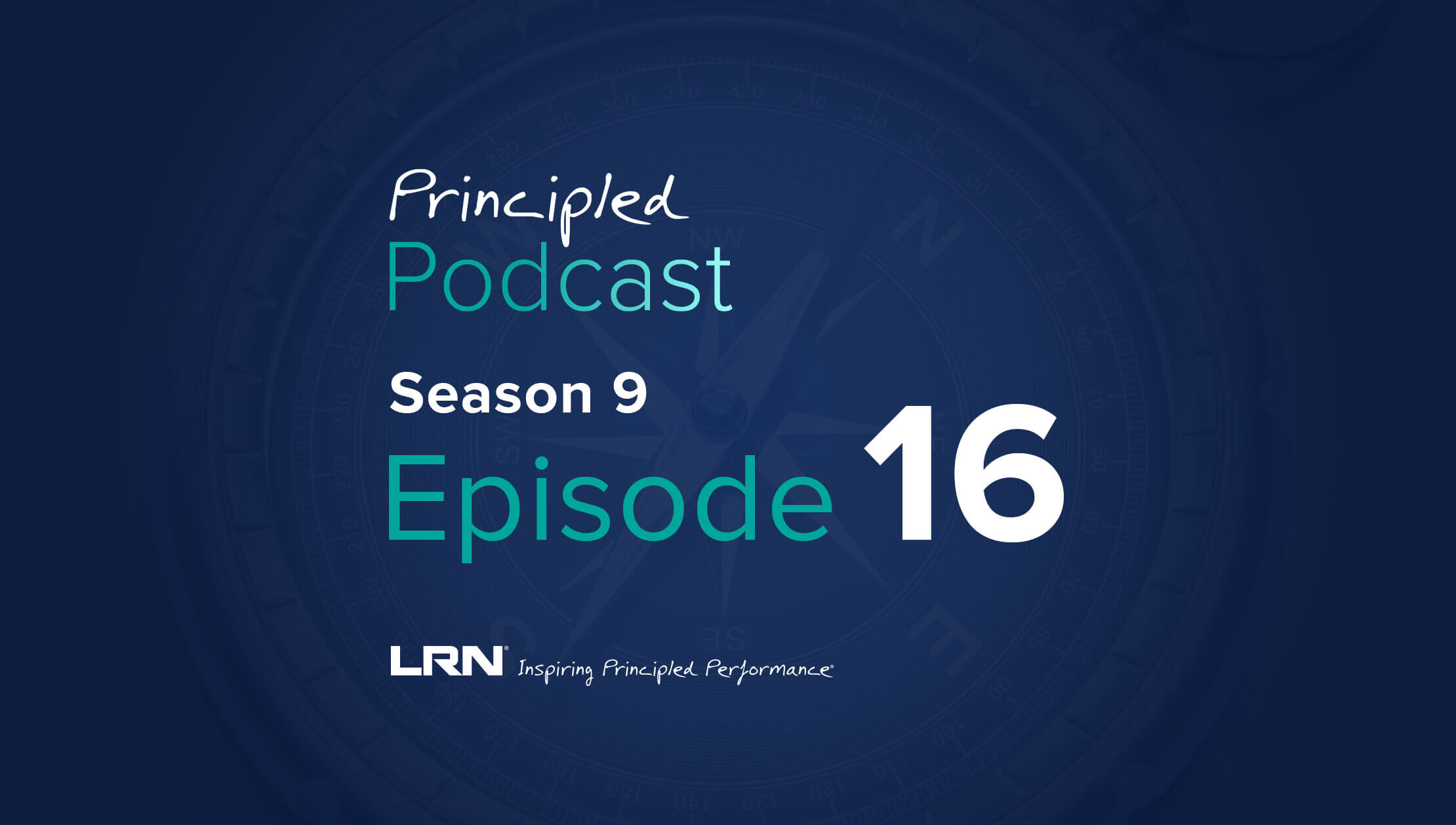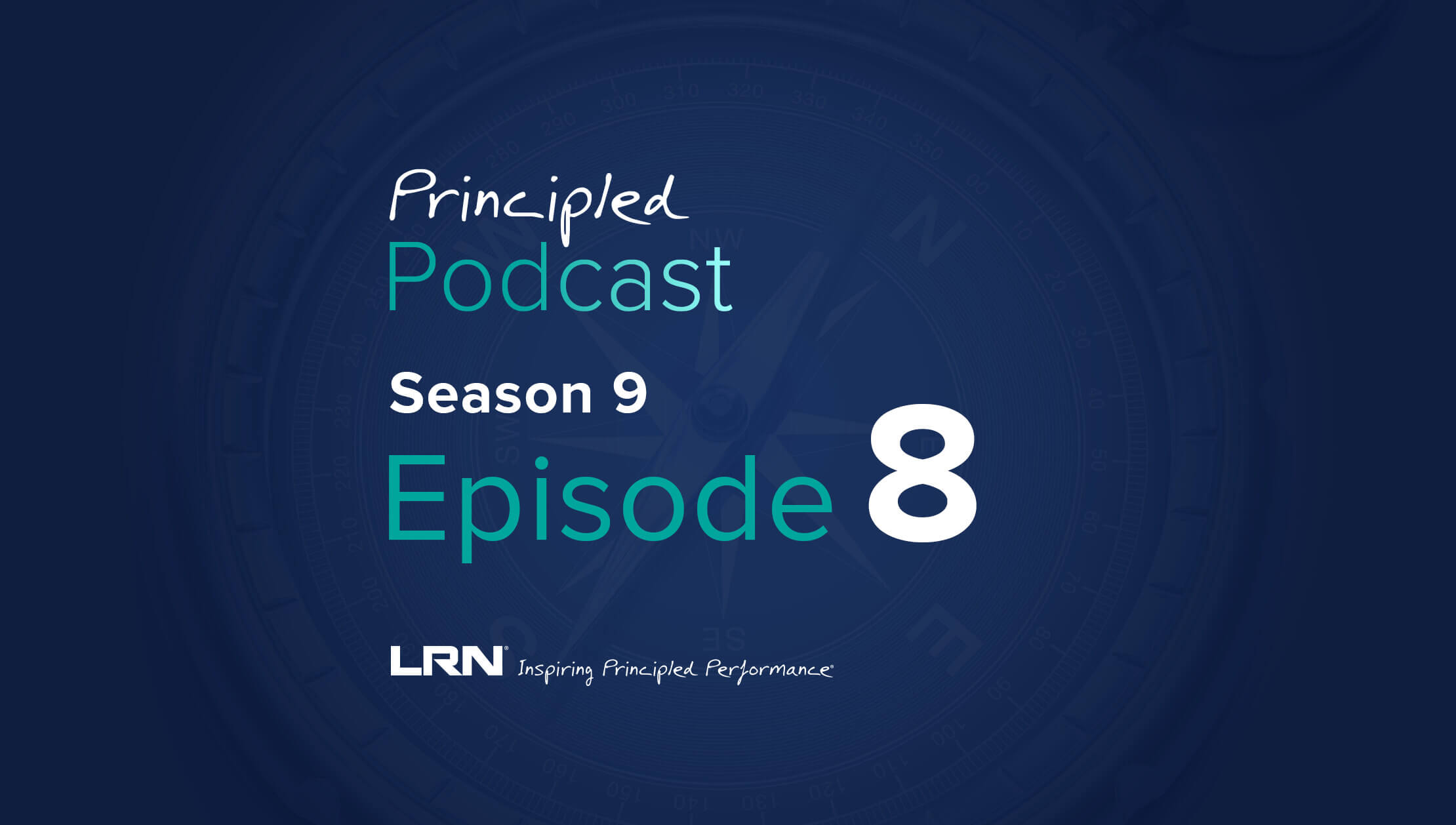This blog post is the third in LRN's “Strengthening the foundation” series, where we dive into research, best practices, and perspectives on building and maintaining ethical corporate culture at the employee, C-suite, and board levels. You can read the first two posts in the series here and here.
The relationship between a company's board of directors and its management team is critical to building and maintaining an ethical corporate culture, but can also be fraught with complications. Because the board oversees much of what those teams do, opportunities for senior leaders to provide actionable feedback on board governance can be limited.
But that doesn't make their views on board governance best practices any less enlightening. PwC and the Conference Board recently surveyed over 500 C-suite representatives for their take on good board practices in corporate governance. The results from their report Board effectiveness: A survey of the C-suite were clear: most executives say board performance is falling short of the mark.
At a high-level, management teams found that their board of directors weren't quite performing up to their expectations with respect to corporate governance. The report also includes recommendations for how these two groups can work together more effectively to deliver better results for their organizations and their governance.
Let's take a closer look at the report's findings and why the importance of establishing good relationships between executives and their board matters.
Executives believe their board can improve performance in governance and oversight duties
The first step in evaluating the relationship between the executive level and the board of directors is understanding how the C-suite perceives the performance of the board.
The report found that overall, executives saw room for improvement from their boards. While they rated their board directors highly when it came to judgment calls, being able to work independently, and having a "strong grasp of core oversight areas," they were tougher on them in other areas.
Only 29% of C-suite respondents gave their board a score of "good" or "excellent." Executives also viewed their directors as not being sufficiently prepared for their roles, failing to spend enough time on them. When asked, fewer than one in four executives (23%) said their board is fully prepared for meetings, and only 27% said directors spend enough time on their duties.
Pre-meeting preparation allows for more productive, value-laden meetings. Putting time and effort into the board's role as a source of oversight is something executives can sense.
Lack of board diversity affects ability to practice good corporate governance
Many boards consist of longstanding members. This has both benefits and drawbacks. Having years of experience can be helpful in providing expert advice and maintaining good business decisions. It can also act as an obstacle to fresh perspectives emerging.
The report found that some at the management level perceived an issue with board members who had served for too long. Many even saw it as a hurdle for diversity. A majority (60%) of C-suite respondents view long-serving directors' unwillingness to retire as the biggest hurdle to more diverse boards. More than half (53%) of those surveyed said their board includes members whose long tenure has contributed to declining performance in board effectiveness.
Looking at it from another perspective: Among C-suite representatives who were asked to pinpoint "unproductive dynamics" they've seen on their boards, 42% cited "excessive deference to long-tenured directors" as a major hurdle to clear. Finally, 89% of the respondents stated that at least one of their board members needed to be replaced while 74% said two or more directors should step down.
This tells us that many executives are concerned about over-committed and long-serving directors' impact in the boardroom. New members provide fresh perspectives and original thoughts. Adding new board members also paves the way for different demographics who may have not been represented in the past to have a stronger voice.
Risk oversight: Boards need to lean into big challenges
It's critical for company boards to contain a varied knowledge base, well-positioning them to tackle modern, unique challenges. This is another area where executives graded their boards using a tough curve.
According to the report, 70% of the executives surveyed said their boards' environmental, social, and governance (ESG) expertise was either "fair or poor." Another 64% scored their boards low on cybersecurity knowledge. The grades were even worse from those who know the most about it—three quarters (75%) of respondents in the technology and IT functions rate their boards' cybersecurity expertise as "fair or poor."
This underlines two things: for one, executives aren't getting the feeling from their boards that they're experts on topics that matter. Additionally, executives value boards that have a forward-thinking approach to gaining knowledge on topics like ESG and cybersecurity.
4 key themes to good board governance and oversight of culture
In the LRN report Activating Culture and Ethics from the Boardroom, 40 directors occupying 80 seats on public company boards—including Cigna, Coca-Cola, Goodyear, HP, McKesson, United Airlines, Walt Disney, and Wells Fargo—shared insight on how to improve board governance, oversight, and involvement in corporate culture. The report features many interesting findings, but here are four key themes the board directors identified as "essential" to these processes:
- Measurement: Directors know the importance of establishing and maintaining a consistent corporate culture, but they fear they're unable to interpret it correctly.
- Oversight: Boards might understand the vital nature of focusing on culture, ethics, and corporate compliance. The issue is that these initiatives take significant time and effort to manage correctly. It's challenging for boards to dedicate time on their agenda to these efforts when so much else is going on.
- Accountability: Most directors agree that boards are the ones driving corporate culture and compliance. The question remains: what is the best methodology for achieving this?
- Trust: Without the trust of its entire organization, it's harder for boards to provide oversight and shape the culture successfully. The first step is to enact widespread transparency.
Best practices to improve board of directors' impact on corporate governance
For an organization to enable functional corporate board governance, there must be a symbiotic relationship between boards and their executives. The PwC report laid out five steps board directors can enact to improve how they work with those executives:
- Take full advantage of annual board and committee self-assessments, along with adopting a robust process for individual director self-assessments.
- Commit to having difficult conversations with underperforming peers.
- Don't shy away from director succession planning. Do the work now to build a pipeline of qualified, diverse board candidates.
- Embrace continuous learning and don't hesitate to call upon outside experts and advisors to get a fresh perspective.
- Get serious about increasing boardroom diversity and leverage direct search firms and other consultants to bring the board diverse candidates.
The report also shared four best practices executives can take to do their part in improving their relationship with their board:
- Give board members the materials they need to review ahead of time prior to meetings.
- Provide an honest assessment of the current board-executive relationship and identify any steps needed to improve it.
- Help educate your board of directors on emerging topics (like cybersecurity or ESG), emphasizing the importance of these areas.
- Onboard directors more easily with a plan that helps connect directors with C-suite executives.
The key takeaway
The bottom line is that while oversight belongs to the board of directors, it is not just on them to deliver solid board governance. Having a well-connected C-suite and boardroom that communicates effectively will help the organization as a whole improve and thrive.
Want to learn more about how boards can shape corporate culture? Download the LRN report Activating Culture and Ethics from the Boardroom and check out our collection of resources covering the board of directors



